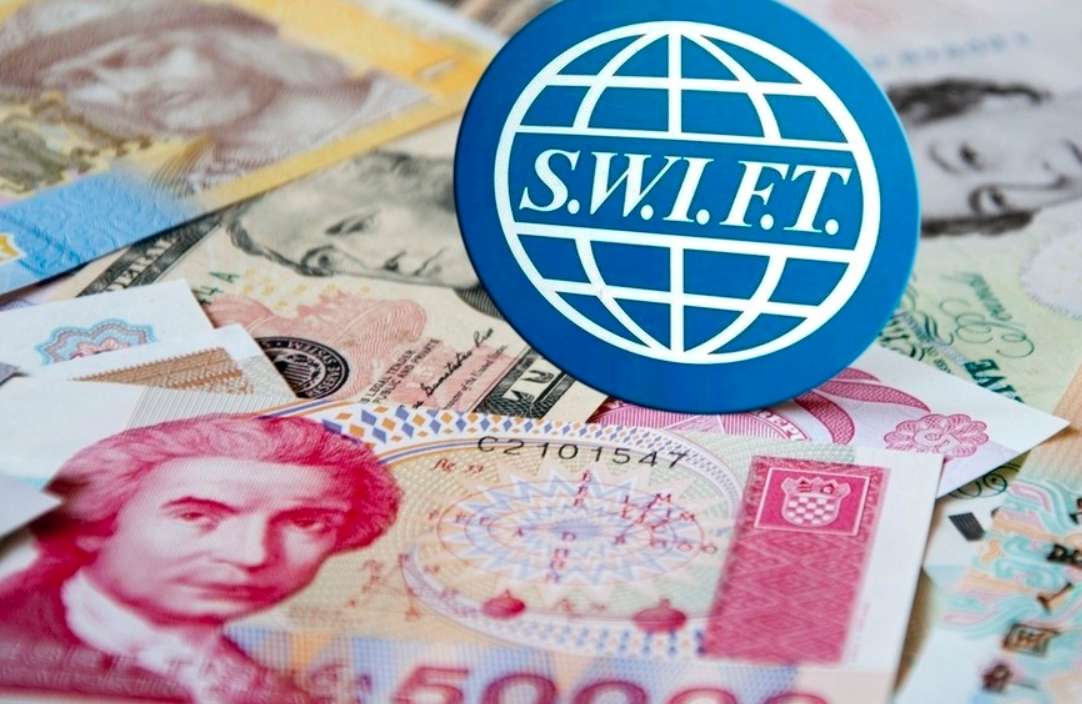Russia's Return to the SWIFT System?
Advertisements
In the recent whirlwind of the international financial arena, a curious rumor has surfaced suggesting a possible re-entry of Russia into the SWIFT financial messaging system. This speculation has gained traction among analysts and social media commentators, positing that the U.S. Treasury is allegedly drafting a list comprising 20 Russian banks that might be permitted back into this crucial network. Additionally, claims have emerged stating that Russian Foreign Minister Sergei Lavrov hinted at a comprehensive agreement between Russia and the U.S. Treasury concerning issues related to bank transfers and payments. However, these assertions remain unverified by any official sources, leaving many to ponder the veracity of the claims and the underlying motives of those spreading the news.
Skeptics have expressed disbelief, suggesting that this scenario seems improbable. How could the U.S., the nation that once sought to economically cripple Russia, now consider reconciliation? Observers are questioning what shifts in diplomacy could lead to such drastic changes, with some speculating that the current tone might be paving the way for substantial progress ahead. The pivotal question arises: Should this re-entry into SWIFT materialize, what implications would it have for the global financial landscape, and for the economic relationships between Russia and China?

SWIFT, often referred to as a financial nuclear weapon in the context of international sanctions, exerts a profound influence on global finance. With over 200 participating countries and more than 1100 member banks and financial institutions, it is integral to facilitating over 90% of global cross-border trade. Being expelled from the SWIFT system dealt a severe blow to Russia's external trade capabilities; while the nation could still export goods, receiving payment became increasingly problematic. This strategic weapon effectively plunged Russian trade into a deep freeze, particularly impacting its critical energy sector, which is essentially the lifeline of the ruble.
Reasons might exist for why the U.S. would entertain the notion of allowing Russia back into the SWIFT framework. From a pragmatic standpoint, the potential benefits for the U.S. are manifold. Observers have noted a significant transformation in U.S. foreign policy orientation, as it appears willing to depart from long-standing positions. Authorities pointed out that high-level withdrawal from multiple international engagements coincides with troubling economic indicators in the U.S. The $36 trillion national debt looms as an unstable threat, and the vast interest payments alone threaten to eclipse $1 trillion annually.
Statistics reveal that since Russia's exclusion from SWIFT, U.S. corporations suffer an estimated annual loss exceeding $300 billion. Especially within the industrial sector, re-establishing connections with a crucial market like Russia is likely seen as vital for revitalizing American manufacturing, a key campaign promise of the sitting president.
From an energy perspective, Russia stands as a colossal player in the global energy market. Severing its ties with SWIFT posed severe economic ramifications not only for Russia but also contributed to substantial instability in global energy supplies. A central aim of the current U.S. administration is to stabilize this sector, yet the tumult unleashed as a result of cutting off Russia created adverse ripple effects across the energy landscape.
Despite rampant speculation, the reality of Russia's potential re-entry into SWIFT is likely to be a convoluted journey; the European Union (EU) undoubtedly poses the most significant obstacles. Reports indicate that clandestine discussions between U.S. and Russian officials have incited considerable displeasure among EU member states, and recent comments from U.S. Vice President Kamala Harris at the Munich Security Conference haven’t helped improve transatlantic relations. The SWIFT network falls under Western jurisdiction, with the EU wielding substantial influence, evidenced by the SWIFT headquarters located in Belgium.
One pressing question exists: Should the unthinkable occur, and Russia indeed rejoins the SWIFT framework, how would this reshape the global financial architecture? Contrary to conventional wisdom, such a development may not signify a fortification of U.S. financial supremacy. Instead, it could be indicative of a cresting wave of decline within the Western-dominated financial systems. Observations suggest that the West's financial sanctions against Russia have not yielded the anticipated results, compelling an increasing number of nations to explore alternative trade frameworks not reliant on SWIFT. ASEAN's apparent ambition to conduct trade settlements in local currencies signifies a tangible shift away from the dollar and an intensifying trend toward multi-polarity in global financial systems.
Furthermore, should Russia reclaim its position within SWIFT, beneficiaries may extend beyond merely Russian enterprises. While one might assume that Western economies would rejoice, it could very well be that companies and nations who have steadfastly maintained their engagement with the Russian market stand to gain most. The collapse of trust precipitated by the departure of Western brands has fragmented decades-long partnerships; brands like KFC and Coca-Cola, once ubiquitous in Russia, confronted the stark reality of their markets being cooled off in favor of local competitors and alternatives.
Entities that previously engaged in trade with Russia under circumstances necessitating intermediaries or alternative payment methods would find the improved normalcy of trade transactions exceedingly advantageous. The shift back to streamlined trade agreements, enabled by re-access to SWIFT, would cultivate a climate of increased efficiency and reduced transaction tedium.
Finally, in considering the broader economic implications of a U.S.-Russia rapprochement, one must address the potential repercussions on gold prices, a classic safe-haven asset. The historical backdrop illustrates that gold often thrives amid geopolitical tensions; thus, a thawing in Russia-West relations could herald a downturn in precious metal valuations, reflective of diminished risk perceptions in the marketplace.
In conclusion, as the world keeps a close eye on the fluctuating landscape of Russia's potential reintegration into the SWIFT financial system, various actors—governments, corporations, and market participants alike—prepare for the uncertain consequences that may arise from this game-changing development. The economic dynamics at play extend far beyond mere transactions; they will undoubtedly reshape trust, strategic alliances, and the fundamental architecture of international trade.
Post Comment